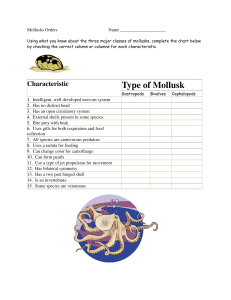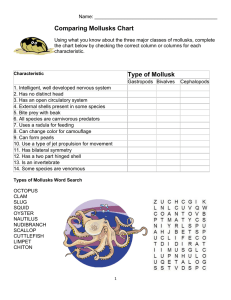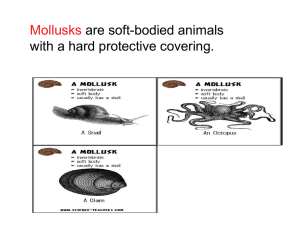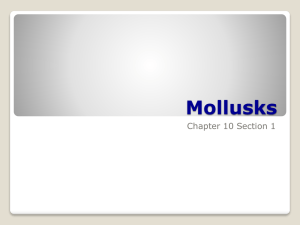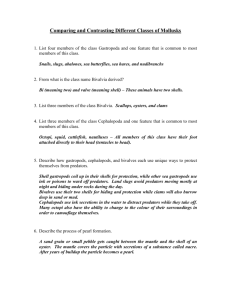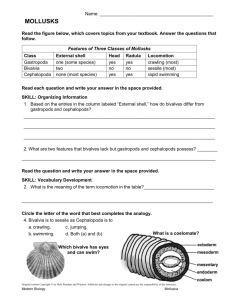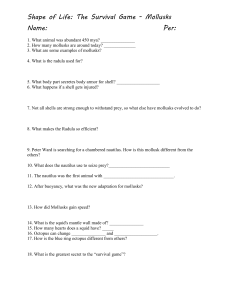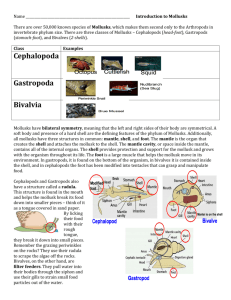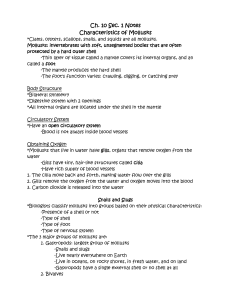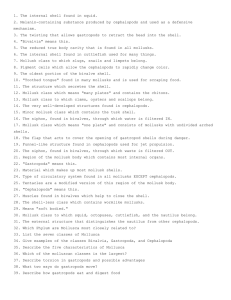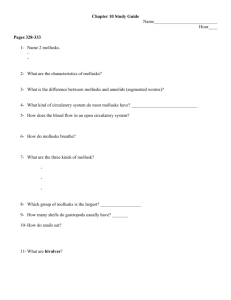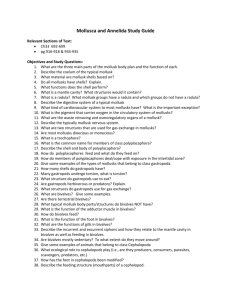Mollusks: Gastropods, Bivalves, Cephalopods - Activity & Notes
advertisement
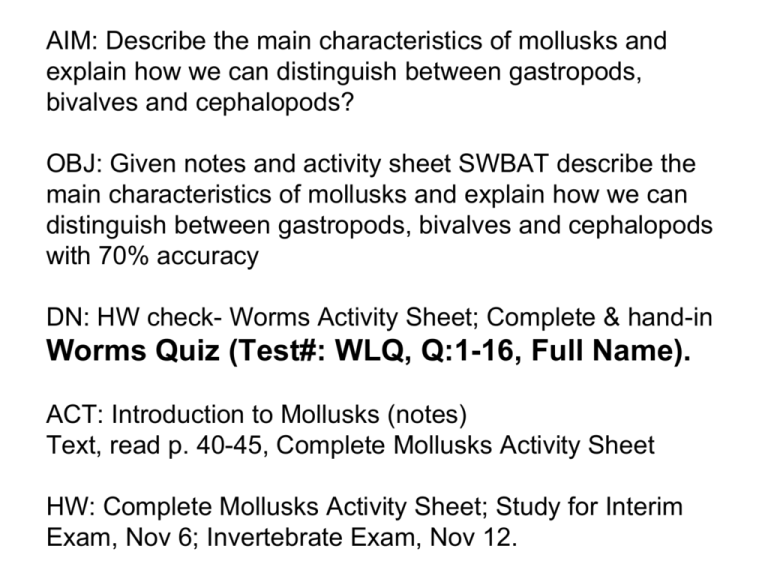
AIM: Describe the main characteristics of mollusks and explain how we can distinguish between gastropods, bivalves and cephalopods? OBJ: Given notes and activity sheet SWBAT describe the main characteristics of mollusks and explain how we can distinguish between gastropods, bivalves and cephalopods with 70% accuracy DN: HW check- Worms Activity Sheet; Complete & hand-in Worms Quiz (Test#: WLQ, Q:1-16, Full Name). ACT: Introduction to Mollusks (notes) Text, read p. 40-45, Complete Mollusks Activity Sheet HW: Complete Mollusks Activity Sheet; Study for Interim Exam, Nov 6; Invertebrate Exam, Nov 12. Mollusk Characteristics soft (unsegmented) body hard outer shell mantle (covering internal organs) foot open circulatory system Example: clams, oysters, scallops, snails, mussels, squid, octopus, cuttlefish ___________________________________ 3 groups: gastropods, bivalves & cephalopods Gastropods 1] radula (ribbon of tiny teeth) 2] creeping foot moves on slippery mucus Gastropods (Snail, Slug) Bivalves: two-shelled Mollusk two shells filter feeders Bivalves (clams, scallops, oysters, mussels) Cephalopods (squid, cuttlefish, nautilus, octopus) tentacles (modified foot) swim by jet propulsion with/without shell nautilus: shell squid/cuttlefish: tiny shell inside body octopus: no shell closed circulatory system complex nervous system large brain: intelligent Cephalopods (Squids & Octopuses) Nautilus: A living Fossil Fossil goniatites & ammonites: ancestors of the Nautilus
